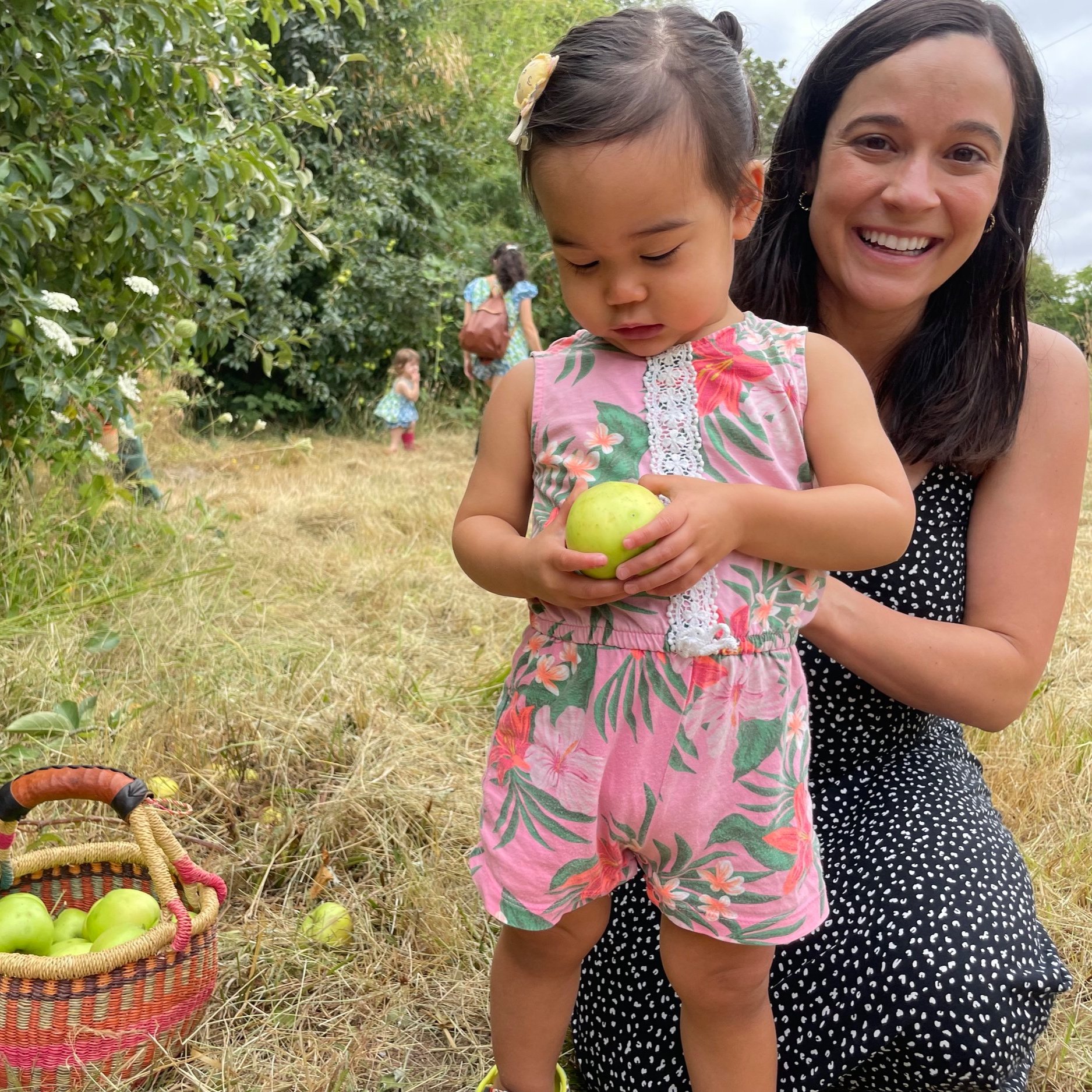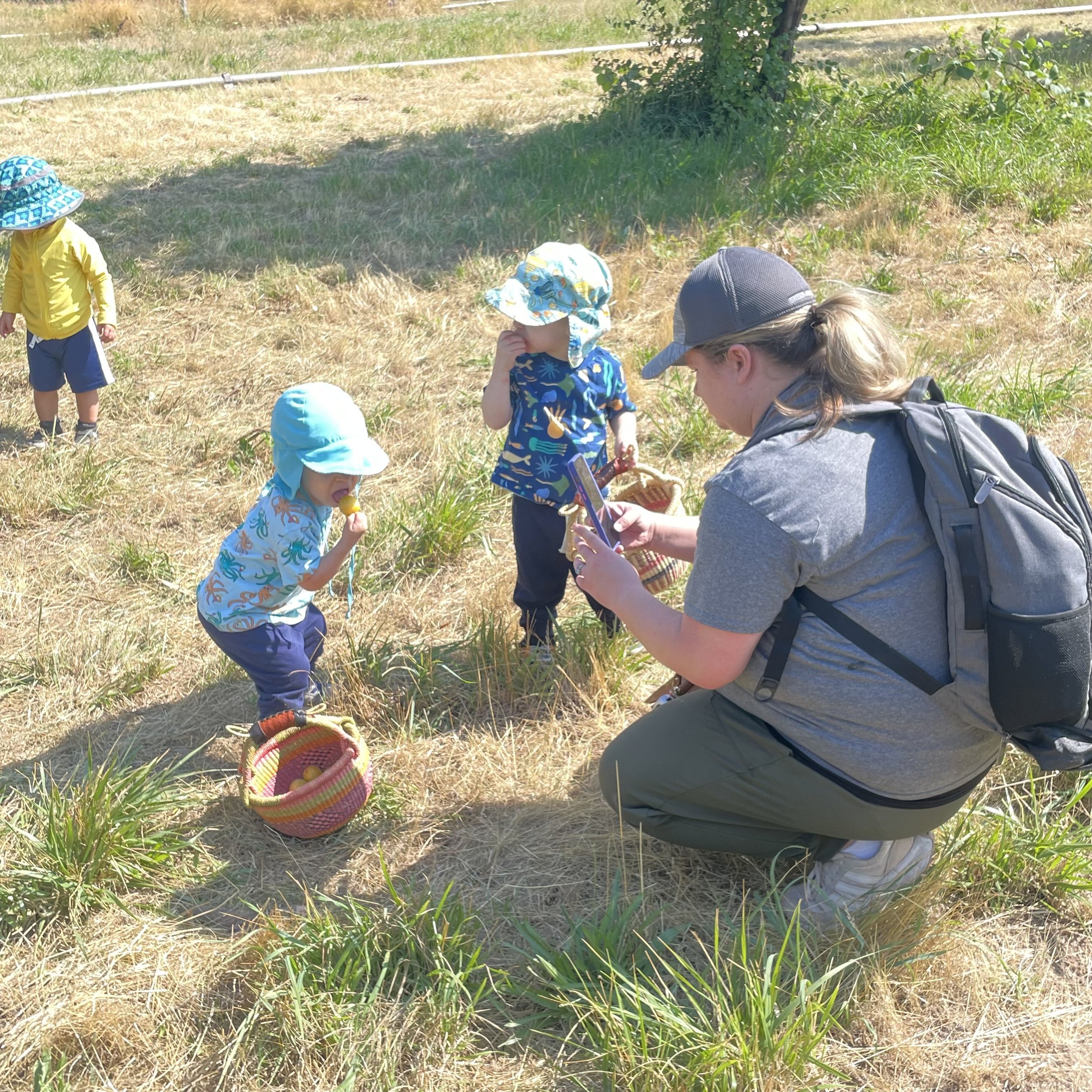Our activities are rooted in social-emotional learning, embracing a student-centered approach that prioritizes their needs, interests, and choices. In addition to regenerative agriculture and nutrition lessons, students learn to regulate their emotions, collaborate toward common goals, and forge friendships through group discussions, meaningful class projects, and unstructured play. We encourage creativity through food preparation, wildcrafting, singing, and journaling. Students regularly take home nature trinkets, artistic creations, fresh food, and more.
Who can participate: Children ages 5–11* participate independently, without parents or family members present, except when family members are volunteering or needed for student accommodation plans. Our students represent diverse communities with a wide range of learning styles, cultural backgrounds, abilities, and interests. We are committed to providing accommodations to ensure every student can succeed in their own way at our farm.
* We will work with families to determine the best class placement for 12-year-olds. Please email us at info@parkerlearninggardens.org for more information.
Class details:
Time: Wednesdays, 4–6 p.m., Families can drop children off as early as 3:50 p.m. We will start our class circle up promptly at 4:05 p.m.
Seasonal schedule 2025: Each season features fresh and exciting projects, ensuring no two seasons are the same!
Spring: March 5 – May 28 (13 weeks)
Two-week break - Family gardening opportunities may be available.
Summer: June 18 – August 27 (11 weeks)
Fall: September 3 – November 5 (10 weeks)
Fall/Winter Break - Ask us about volunteer opportunities!
About our instructors: Our staff members are approved through the Oregon Department of Education Central Background Registry and receive ongoing training to meet the diverse needs of our students. Sarah “Redbud” is the lead instructor for all 2025 Children’s Garden Club seasons. Redbud has experience leading outdoor school programs for groups of 100+ students and managing organic gardens. She loves creating fun opportunities for service learning and encouraging student voice and choice. Additional instructors have experience in organic farming and gardening, practicing applied science and community health, and leading youth outdoors. We are committed to creating a safe, inclusive learning environment, accommodating diverse student needs. We maintain a 6:1 student-to-instructor ratio, with additional support from instructional volunteers and guest speakers whenever possible.
Communication: In 2025, instructors will correspond with parents and guardians via the Remind app to provide real-time feedback and updates on a regular basis. Family members may also opt to receive text messages directly. We can accommodate other family communication needs on a case-by-case basis.
Sample lesson topics and activities throughout the year include:
Organic gardening and regenerative agriculture: composting, pest management, seed germination, soil health
Teambuilding, cooperative games, and play-based learning
Farm animals and pollinators
Decomposition, microbes, and fungi
Food preparation, preservation, and nutrition
Building and creating: birdhouses, nature journaling, wildcrafting
Plant identification and care (wild and cultivated plants)
Climate, weather, water cycle, and seasons
Ecology, food webs, and environmental care
Field science: making observations, asking questions, and using evidence to explain





















